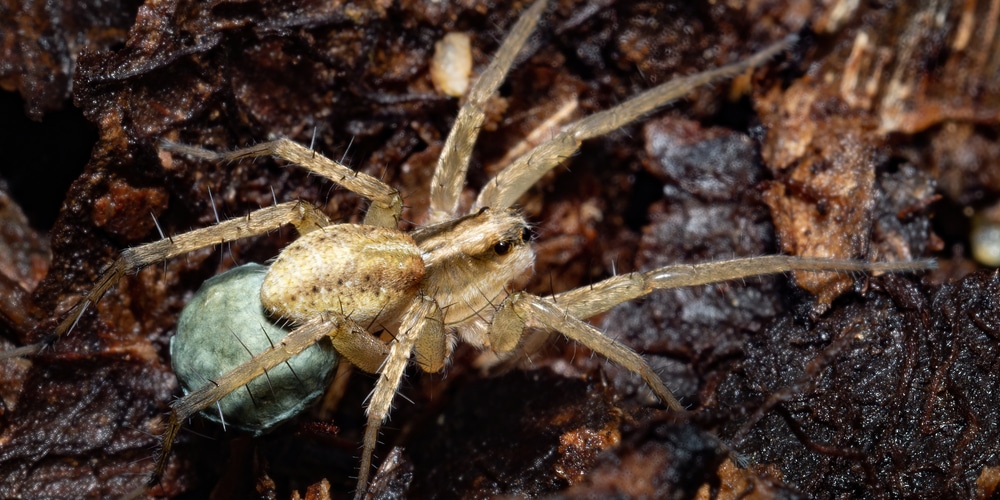Spiders will often lay spider eggs in plant soil. This is because, in order for spiders to lay their eggs they need to find a moist, inactive and chemically natural environment, which plant soil provides.
Because of the perfect conditions which plants and plant soil provide, spiders will actively seek said soil out in order to lay their eggs. They lay their unborn children within the soil itself, which often makes it initially difficult to spot spider eggs.
This can sometimes make the eggs almost impossible to deal with and remove until they hatch. These eggs hatch at a pretty quick pace, with some hatching after just 5 days.
At most, it’ll take spider eggs a few weeks to hatch. Because of how rapidly these eggs can cause unwanted consequences it is better to act immediately. If not, there is a high chance that your house and/or garden will be overrun with spiders in no time.
Not to mention the fact that these newly hatched spiders will also bring more risk to your plants and greenery.
How to tell if there are spider eggs in your plant soil
Spider eggs resemble small orbs and are usually creamy or bright white in color. They are pretty miniscule and there will often be a bunch of them at one place as spiders prefer to lay anywhere from about 150 to 1000 eggs at once.
This is so their offspring have a larger chance of survival. They are spherical in shape and may sometimes be covered in a silk like wrap for protection. The texture of the egg itself can vary from smooth and squishy to somewhat fluffy.
Moreover, you may sometimes spot a spider near wherever their small bundle of developing spider eggs are. This is because spiders are actually known to be very protective and caring parents. This means that, they want to look out for their children and ensure that their eggs remain unharmed.
How to remove spider eggs from your plant soil
The first and easiest remedy you can try in order to remove spider eggs from your plant soil is to minimize how often you’re watering your plants. Because spiders need a nice and moist environment in order to lay their eggs, not watering your plants would result in them drying out and not being able to hatch. It is recommended that you try not to water your plants unless the soil has completely dried out.
However, you must keep in mind that this would only work on plants that can survive in a longer drought. Doing this to water-loving plants could result in more harm than it can good as it could cause them to die along with the spider eggs.
You can also try using rubbing alcohol as it is a powerful pesticide that can often get rid of quite a few annoying pests, including spiders and spider eggs.
All you have to do for this is to rub some alcohol on your plant’s leaves with a piece of paper or cotton ball. You can also use a 1 to 3 solution that’s made up of rubbing alcohol mixed in with water to get rid of the eggs.
You should be careful when doing this as if the concentration is too concentrated it may make your plant’s roots burn. On the other hand, if it’s not concentrated enough then it won’t be effective in stopping the spider eggs from hatching.
For a slightly more toxic alternative, you can use pesticides to kill the spider eggs. You can use either oil based or crystalized pesticides as some of them have chemicals inside of them that can prevent the spider eggs from hatching or just kill them altogether.
However they may cause the plant itself to become toxic if ingested or for it to begin to burn and wilt so do this at your own risk.
Spider eggs in plant soil: final thoughts
Overall, spider eggs are a really irritating nuisance that could bring on quite a bit of harm to you and your garden if a spider has laid them in your plant soil.
However, once spotted they are pretty easy to get rid of and there are quite a few solutions you can try, both chemical and non-chemical, to eliminate them.
Related Article: Where Do Japanese Beatles Go At Night

